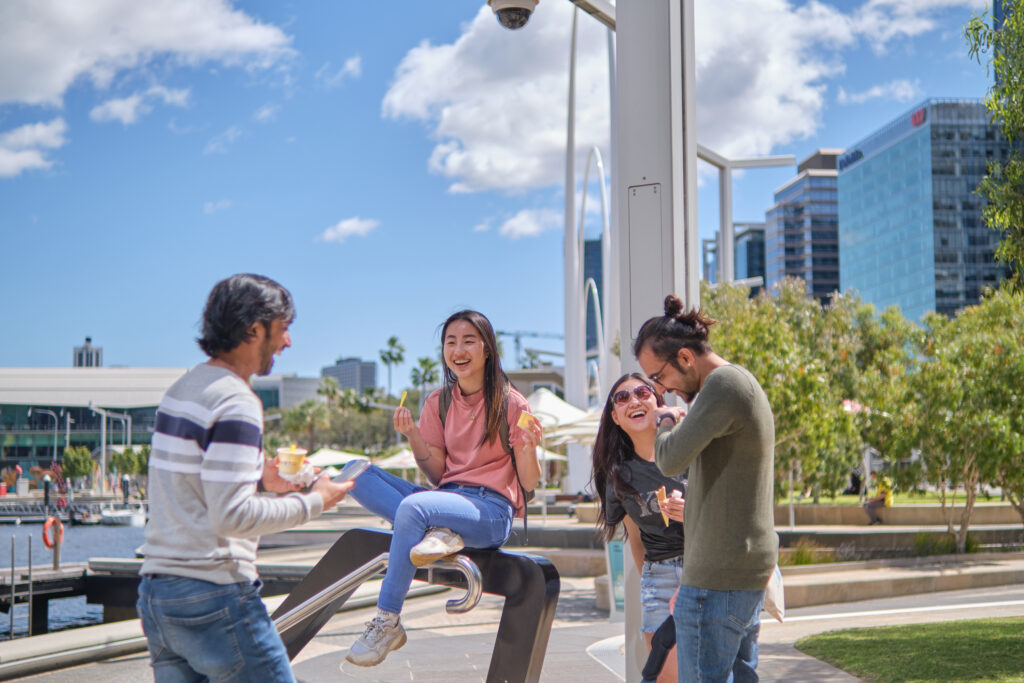International students often have questions about healthcare in Australia and their health insurance. Below we have answered some of the most frequently asked ones.
What is Medicare?
Medicare provides Australian residents with access to a range of medical services, free care in public hospitals and reduced cost prescriptions.
Am I covered by Medicare?
Most international students in Australia must have Overseas Student Health Cover (OSHC) to cover the entire period of their stay.
What is Overseas Student Health Cover (OSHC)?
OSHC is health cover that you are required to have as an international student in Australia and must cover the length of your stay. This would have been organised when you arranged your visa. OSHC covers in-hospital and out-of-hospital medical assistance, prescription medications and emergency ambulance assistance. Make sure you know the extent of your cover to avoid any unwanted charges.
Read more: Arranging Overseas Student Health Cover
What do I need to know about Australian hospitals?
If you are feeling sick then visit a doctor at a local medical centre first. This is the cheapest upfront option and you may be able to claim from your health provider.
Hospitals are for emergency situations – either life-threatening or an injury/illness that is getting worse quickly. If you need to visit a public hospital then call your health cover provider as the hospital may charge you a fee.
What should I do when medical clinics are closed?
Very few medical clinics are open seven days or have 24-hour services (and those that do can be expensive). If you need a medical certificate or you have a minor illness, wait until the doctor’s offices are open. You can also ring healthdirect Australia to get advice on treating non-life-threatening illnesses.
What should I do if I am having mental health struggles?
Remember to take time out for yourself. If things seem too hard, talk to friends and family. Universities and colleges often have counselling services or you can use free services Beyond Blue and Lifeline. Make sure you talk to someone as soon as you feel like things are getting too hard to handle.
Read more: Taking care of your mental health
What should I do if I have a complaint about my OSHC provider?
If you face a situation where you feel like you’re being taken advantage of or unfairly treated in regards to your OSHC, you can contact the Private Health Insurance Ombudsman (PHIO). It’s a free service designed to help you out of trouble!
What should I know about sexual health?
Sexual health is one topic that you should make sure that you are an expert. Read all about it at healthdirect, talk to your GP or visit your local sexual health clinic in your city.
- New South Wales
- Queensland
- Victoria
- Tasmania
- Northern Territory
- Western Australia
- South Australia
- Australian Capital Territory
You can get contraceptive medications and devices very easily and cheaply in Australia. Condoms are available from supermarkets and pharmacies.
Emergency contraceptives are available from pharmacies without a prescription and need to be taken within 72 hours for the most effective result.
I’m pregnant and I don’t know what I should do?
Speak to a doctor if you believe that you may be pregnant (i.e missing your period or a positive home test). This can be either a GP or specialist family planning/sexual health practitioner.
Counselling is available from organisations like Family Planning Alliance Australia to support you through what can be a difficult time and help you understand all your options. Also, your institution should have counsellors available that can be of assistance with a great number of issues.
Pregnancy-related care is often not covered by OSHC for the first 12 months of the cover. Additional private health insurance can be taken out to help you cover the costs, which can be quite expensive.
Note: If you plan to fly home for the birth be aware that airlines may not accept passengers more than 28 weeks’ pregnant.





